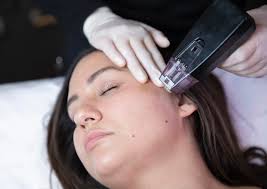9 Great Ways to Turn Around Your Dental Hygiene Regimen
You don’t need only brushing and flossing to get the best smile ever. There are so many other essentials you should adopt for healthy teeth. This is why we have crafted this useful guideline in the form of 9 best oral care practices to help you get the best outcome.
Each time you open your mouth, you will notice something new.
You are already aware that your dental health impacts your general health. This is true. Studies show a relationship between gum disease and several health problems like diabetes, stroke, Alzheimer’s and heart disease. Because of these related health issues, you need to take your oral health seriously. However, cleaning your teeth and keeping a regular appointment with your dentist alone may not suffice.
That said, let’s move right into the measures you need to practice for improved dental hygiene that will change your teeth condition for the best.
Delay brushing your teeth if you’ve had sugary or acidic drinks and foods:
The whole idea of protecting your teeth cuts across keeping every part of your teeth including the enamel safe. You certainly love to drink coffee, juices and eating tomatoes, but if you want to protect your tooth enamel, don’t brush immediately after a cup of wine or a plate of sauce. This is because the acid makes the enamel soft for a short time. So, should you brush right after, you stand a chance of losing part of your enamel, which can cause decay.
Do yourself a favour and not brush a few seconds after gulping down a glass of orange juice or a helping of a tomato-based meal. It is best to wait 30 to 60 minutes before brushing. It reduces the eroding of your enamel than those who go straight into brushing after taking fizzy drinks.
Replace your toothbrush with one that has soft bristles:
While it’s important to change toothbrushes after 2 to 3 months or earlier (for worn-out bristles), you may consider getting a soft-bristled toothbrush to replace a hard brush (if that’s what you have). Toothbrushes with medium to hard bristles may clean your teeth better, but they will cause harm with time.
A lot of persons can work well with a soft brush plus it makes no sense brushing with vigour – it will harm your teeth and gums. Rather, brush carefully with moderate pressure. Incline the toothbrush at an angle of 45 degrees against the gum line and move it in circles around the teeth as you brush.
Let your brushing begin from the back of the mouth:
The molars at the back have remote places where debris can hide and cause cavities and gum disease. So, it makes sense to start your brushing procedure from the back teeth and work your way to the front teeth.
When you start brushing from the back, the molars get the desired attention that it often doesn’t get. Develop a brushing routine from any of the sides at the back of your mouth and follow it jealously; it will ensure no teeth are missed while brushing, says dental experts.
Introduce mouthwash and chewing gum to your teeth cleaning regimen:
For persons who have adopted a two-times-a-day brushing pattern and flossing, it may seem sufficient that your teeth are being properly cleaned. However, when you bring in a mouthwash – an antimicrobial type it will eradicate many bacteria in the mouth and resist plaque more. So, after brushing and flossing, take a good amount of the mouthwash into your mouth and swish with vigour for 30 seconds. This can be done two times per day.
Alternatively, chewing gum can help, especially the type containing no sugar. Dental experts say sugarless gum will lower the number of mouth bacteria, increase saliva production that supplies essential phosphate and calcium ions to the teeth – making the enamel stronger.
Film your teeth cleaning procedure:
According to research, taking a video of yourself as you brush can improve your technique of brushing – an improved version of looking in the mirror while you clean your teeth.
This suggestion has been tested and proven to work as those who participated in the study achieved the right brushing techniques with help from guidelines.
What was most spectacular from this study is that although participants’ brushing time did not increase, their strokes and precision did – making their teeth brushing skills better than before.
Dental experts support this recommendation highlighting that you can be very aware of how you’re brushing when you film the process. You are prone to a better performance realising that you have a camera watching you. You can watch the clip to check for any flaws and do better when you are done.
Avoid over-zealous brushing:
The usual recommendation is to brush your teeth each time you finish eating. However, too much brushing can wear out your teeth, enamel and gums, so experts advise you to keep your brushing time to twice daily. You can rinse your mouth with water in between meals, particularly after snacking or meals. Experts suggest you swish water with force around your mouth to remove any leftover food between your teeth.
If you take sugary drinks, don’t sip them over a long time.
It is advised you lower sugar consumption, but if you need to drink sweetened tea or coffee or juice, avoid sipping it in small amounts per time, rather drink all at once.
Delaying your sipping exposes your teeth to sugar more often, and bacteria will act on the sugar to produce harmful acids (lactic acid). The acid begins to soften teeth minerals leading to the formation of cavities.
Eat foods that whiten your teeth:
As there are foods that stain teeth, so are there foods that help make the teeth whiter. Foods like carrots, cucumber, lettuce, celery and pears contain fibre and are coarse. They act as a scrub cleaning the teeth surface, removing existing plaque that can discolour the teeth as you eat them.
The fibrous nature of these foods means you have to chew them for quite a while, and as such, they increase mouth saliva, that’s important for acid neutralisation and prevention of enamel erosion.
Keep your toothbrush container clean:
We change our toothbrushes but neglect cleaning the container that holds them most of the time.
A toothbrush holder may accommodate your brush, but it also houses most germs found in the bathroom. On the list of household items that hold germs the most, toothbrush holders take number 3 spot with kitchen sink coming second and dish sponge coming first.
So, every one or two times a week, use hot soapy water to clean your brush holder or wash it in the dishwater. Afterwards, dry it with a disinfecting wipe.
Final words
Improving your teeth cleaning routine will add more benefits to your oral health. With the ways that have been discussed, you can begin to change the way you care for your dental health. Where you have an oral emergency and need urgent dental services in London, kindly contact us to book an appointment.



Leave a Reply
You must be logged in to post a comment.